The Connecticut Alliance to End Sexual Violence and Men Can Stop Rape have partnered to create the Where Do You Stand? Connecticut campaign. This campaign focuses on engaging Connecticut men as active participants in the prevention of sexual violence in their communities. It was designed to use bystander intervention theory and techniques to equip men with the tools necessary to take a stand against all forms of sexual violence.
Where Do You Stand? Connecticut empowers men to use their voice, influence, and actions to become a part of the solution, rather than being a part of the problem. Over the past three years, more than 2,500 men have participated in our Where Do You Stand? Connecticut bystander intervention trainings.
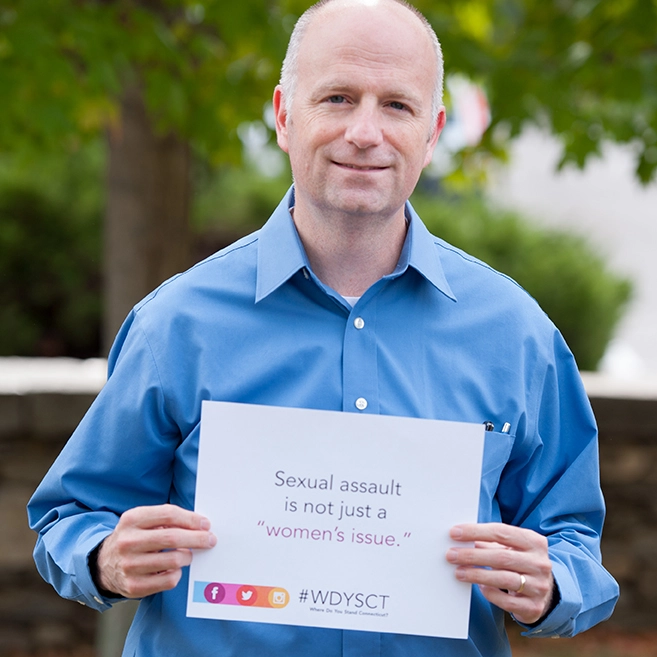
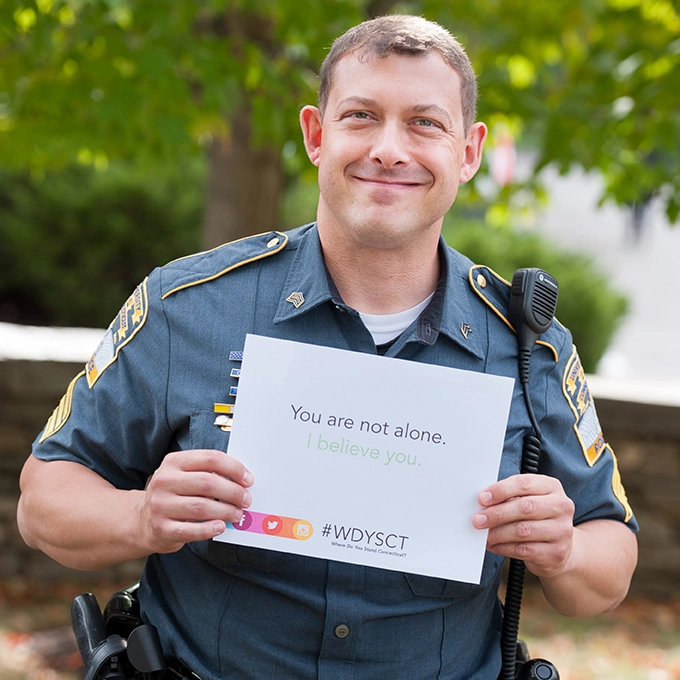
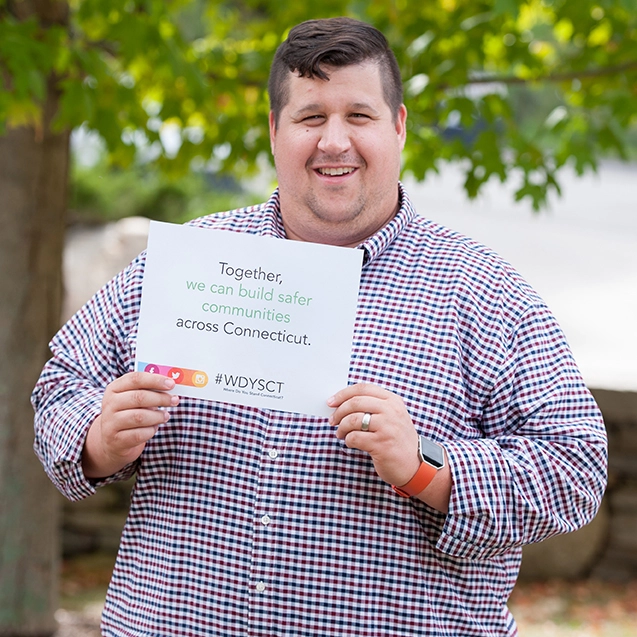
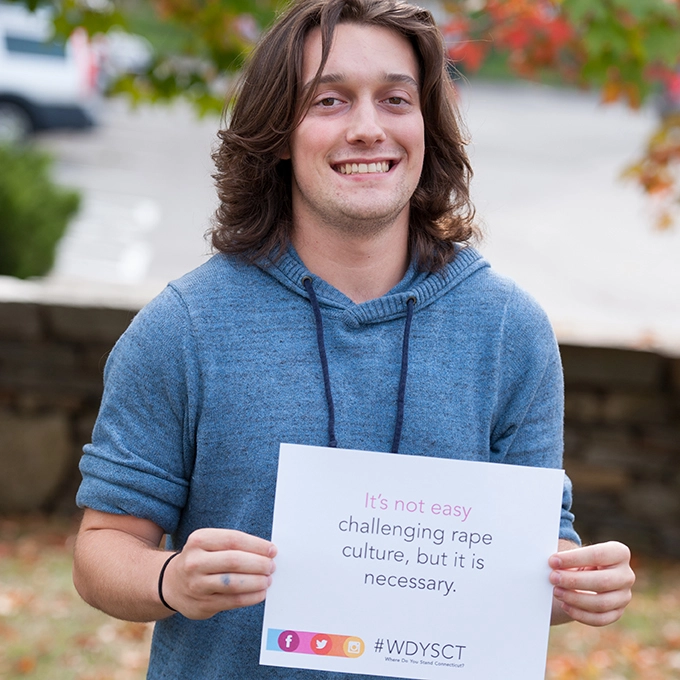
Common Questions
What is bystander intervention?
Bystander intervention aims at empowering each of us to respond to and prevent sexual violence. Bystander intervention quite simply means having a willingness to take action when it’s needed. Ending sexual violence, and all forms of oppression, will take a lot of collective work. We all need to be willing to take action to challenge cultures that allow sexual violence to occur. Bystander intervention techniques can involve a wide range of interventions, from being direct to creating a distraction. Our bystander intervention workshops provide men with useful tools to stop a range of negative behaviors, intervene when they see harmful situations, and create spaces where everyone is safe and respected.
Can we prevent sexual violence?
Yes, sexual violence is preventable. Sexual violence affects entire communities; therefore, solutions also need to engage entire communities. Violence prevention aims at stopping violence before it occurs and requires an understanding of the factors that influence violence. It is important to take into consideration the complex relationship that individuals have with the world around them and how that influences their behaviors. Sexual violence can be prevented by using comprehensive, multifaceted strategies that empower both individuals and communities to address attitudes, cultures, and actions that contribute to rape culture.
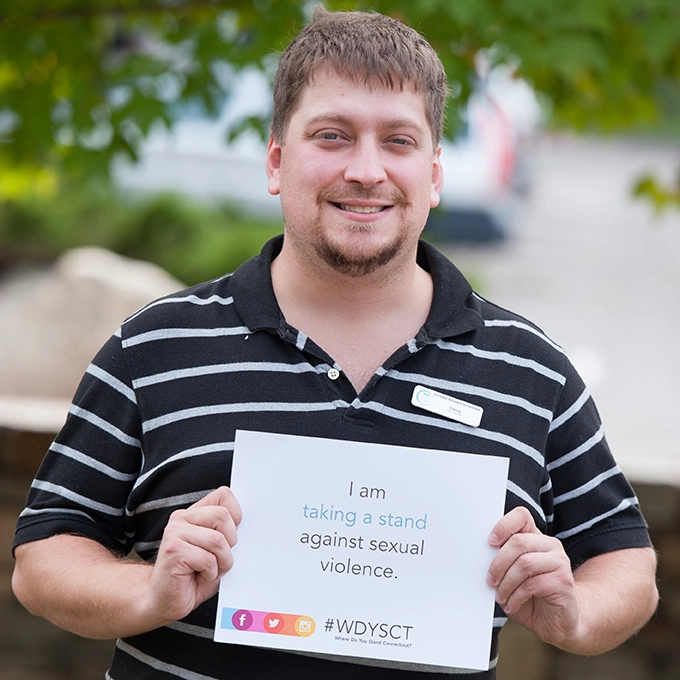
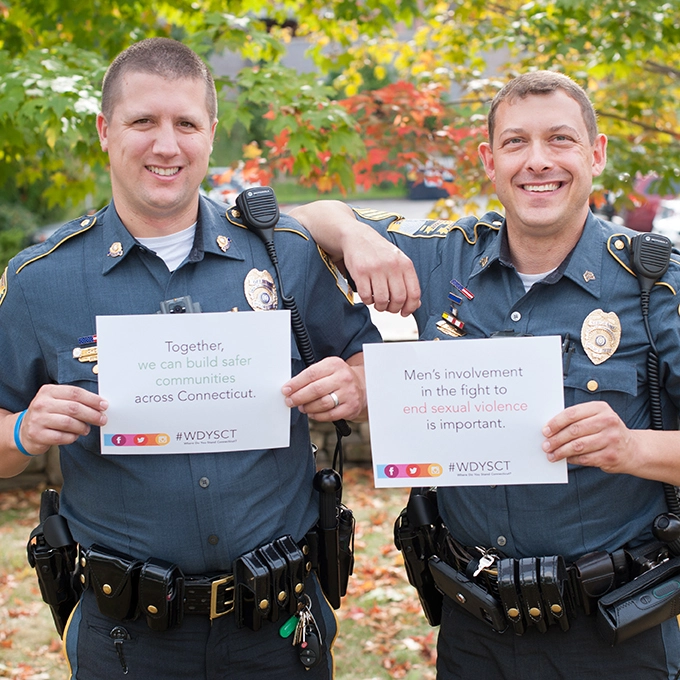
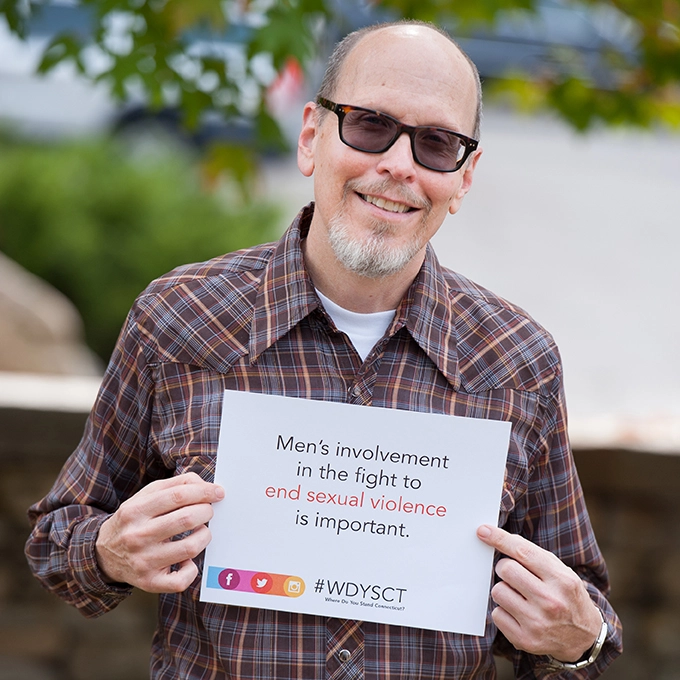
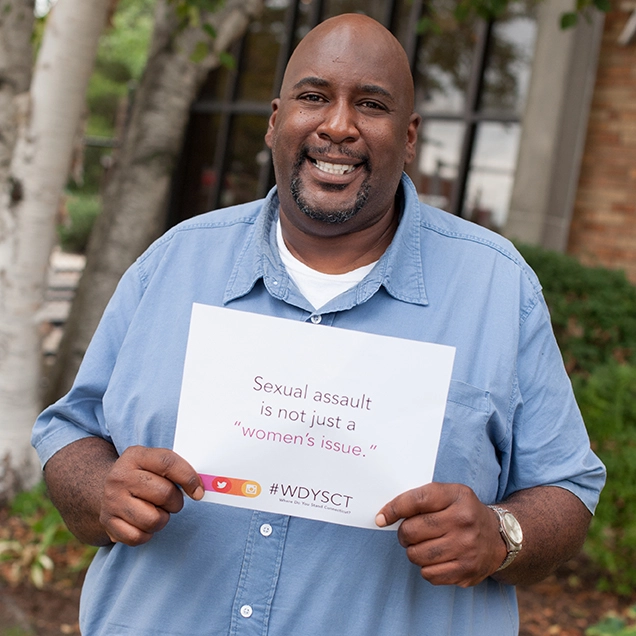
Get Involved
We believe that men play an important role in preventing sexual violence. While the bulk of sexual violence in our society is perpetrated by men, only a small population of men are committing these multiple sexual assaults. But those who do not commit rape are still likely to participate in cultures that support, glorify, and justify sexual violence.
In order to end sexual violence, all men need to be actively engaged in addressing cultural norms that support sexual violence. Men holding other men accountable is crucial to creating a society free from sexual violence.
Where Do You Stand? Posters

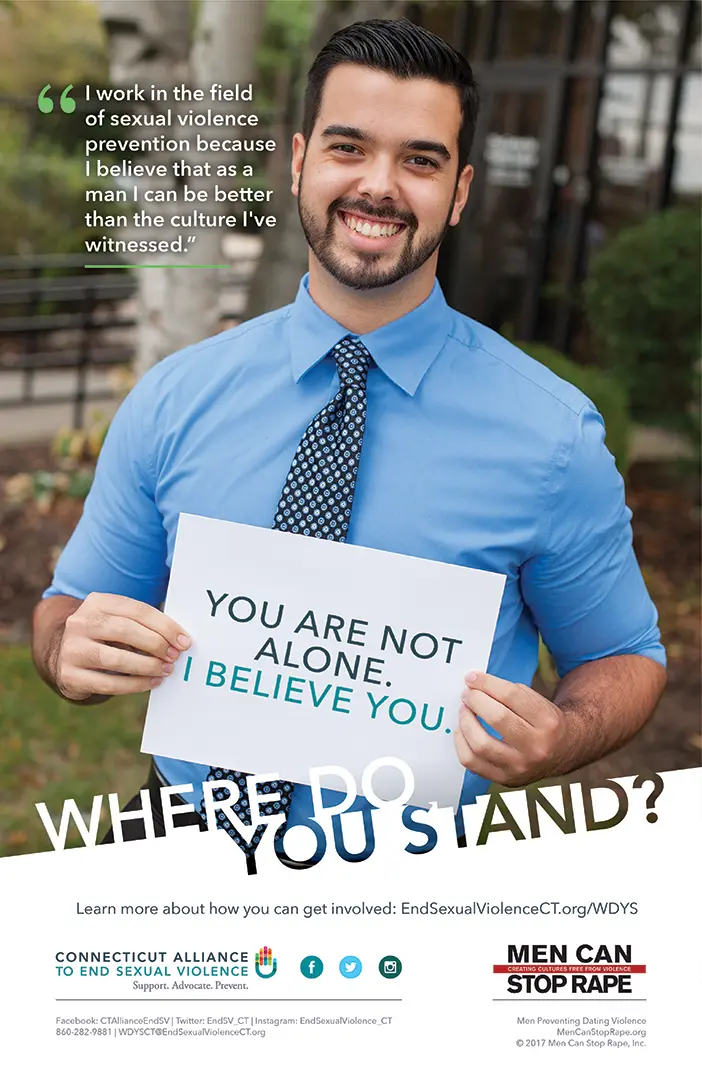
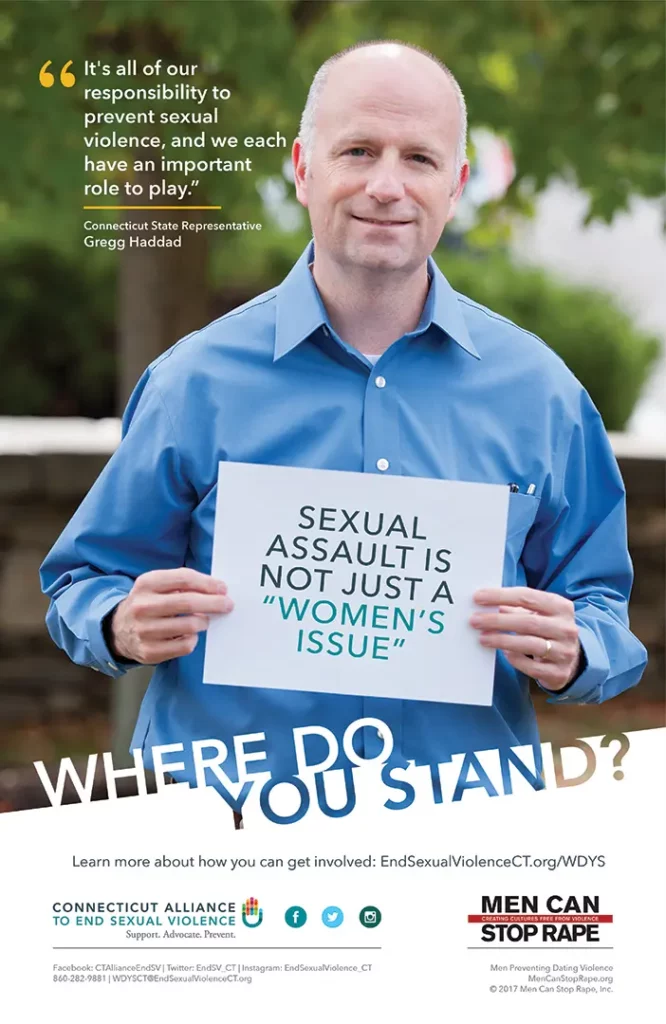
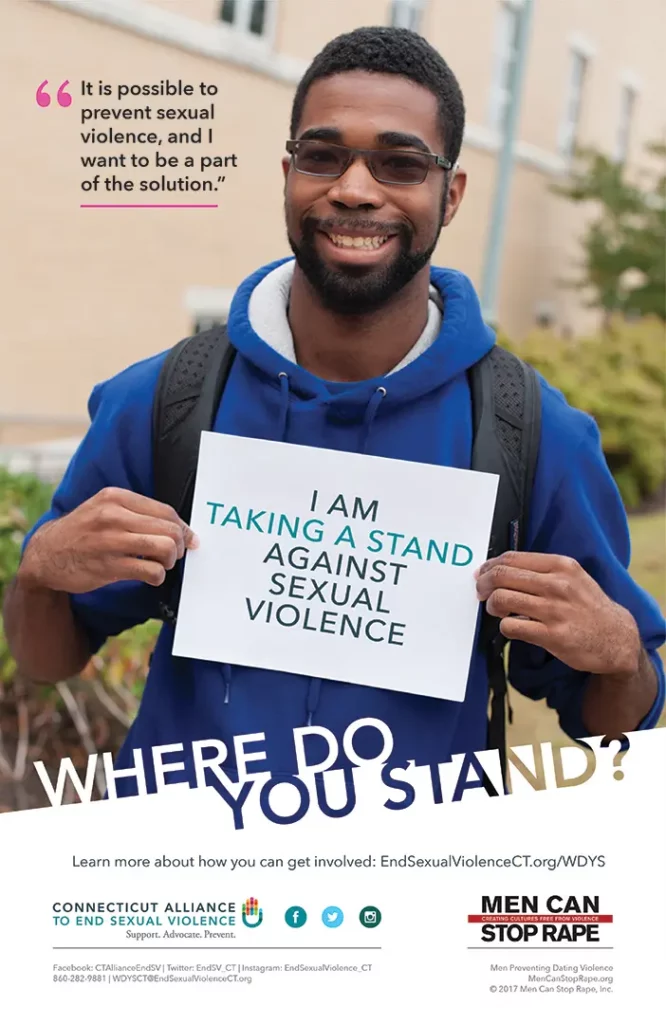
Take a Stand
Challenge the Behavior: Explain why his behavior is unacceptable. “It’s not okay to keep harassing her. She’s made it clear she isn’t interested.”
Ask Questions: Encourage him to think about his motivation and actions. “Why do you want to be with someone who doesn’t want to be with you?”
Appeal to His Best Self: Communicate that you respect him and know he’s capable of making the right decision. “You’re better than this. You know the right thing to do.”
Use “I” Statements: State your feelings, the reason for them, and what you want. “I don’t feel comfortable being a part of this because it’s clear she’s moved on, and I think you should too.”
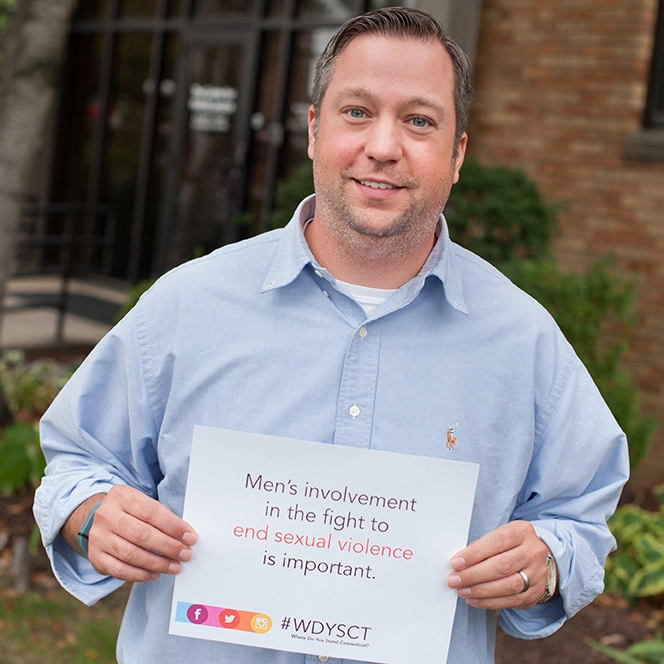
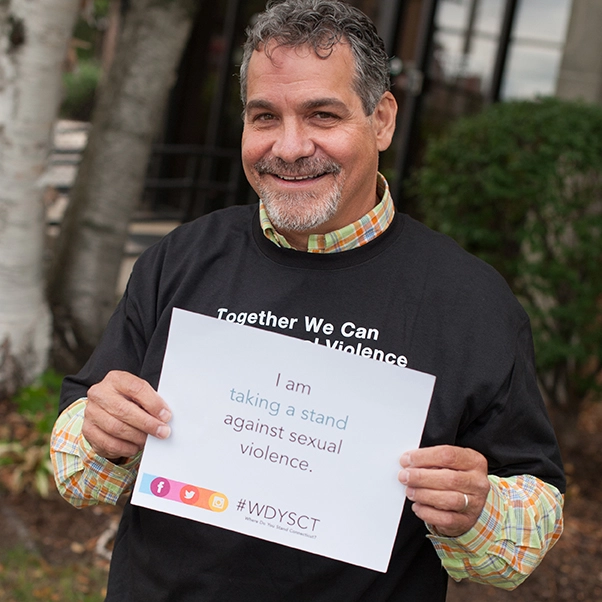
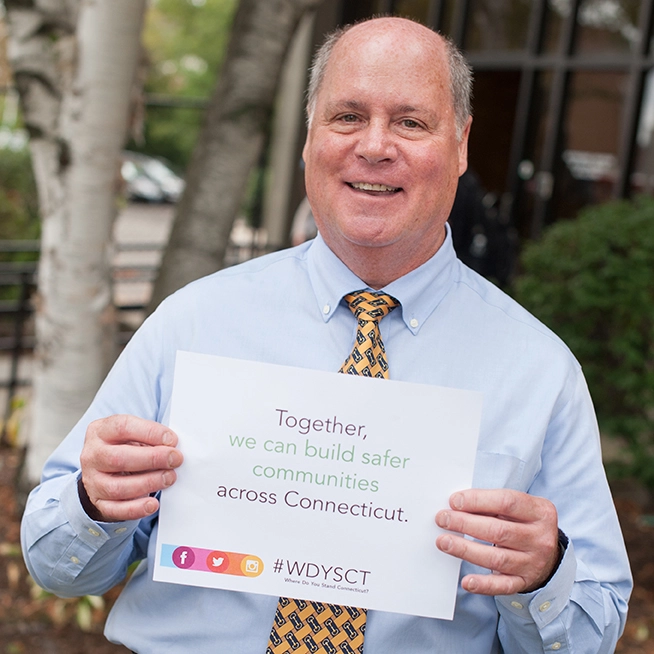
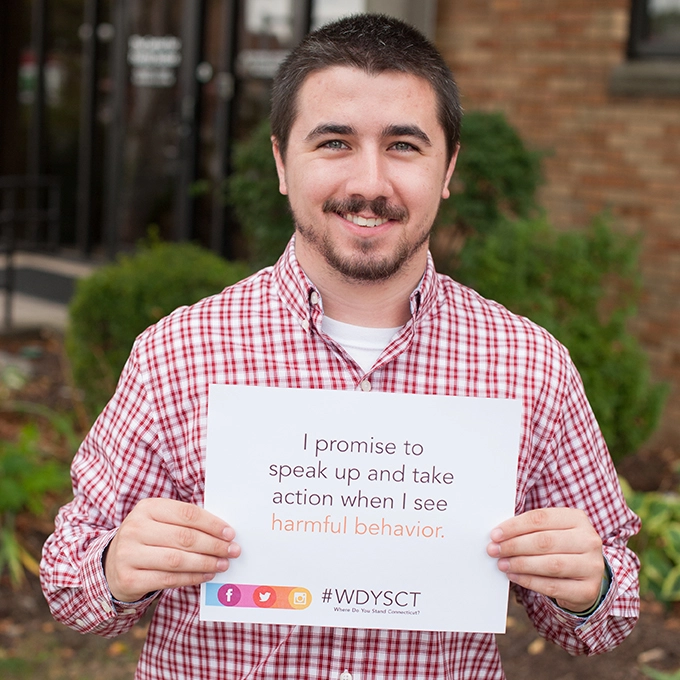
Tomar una Postura
Cuestiona el Comportamiento: Explica porque lo que el está haciendo es inaceptable. “No está bien estar acosándola (mujer). Ya te dijo claramente que no está interesada.”
Haz Preguntas: Anímalo a pensar acerca de sus motivos y acciones con preguntas como: “Por qué quieres estar con alguien que no quiere estar contigo?”
Atrae lo Mejor de Su Persona: Comunícale que lo respetas y sabes que es capaz de tomar la decisión correcta. “Tú eres mucho mejor persona para no comportarte así. Tu sabes cuál es la forma correcta de hacer las cosas.”
Utiliza Enunciados en Primera Persona: Determina tus sentimientos, tus razones, y lo que deseas: “No me siento cómodo siendo parte de esto porque es claro que ella ya te olvidó, y pienso que tu también deberías hacerlo.”
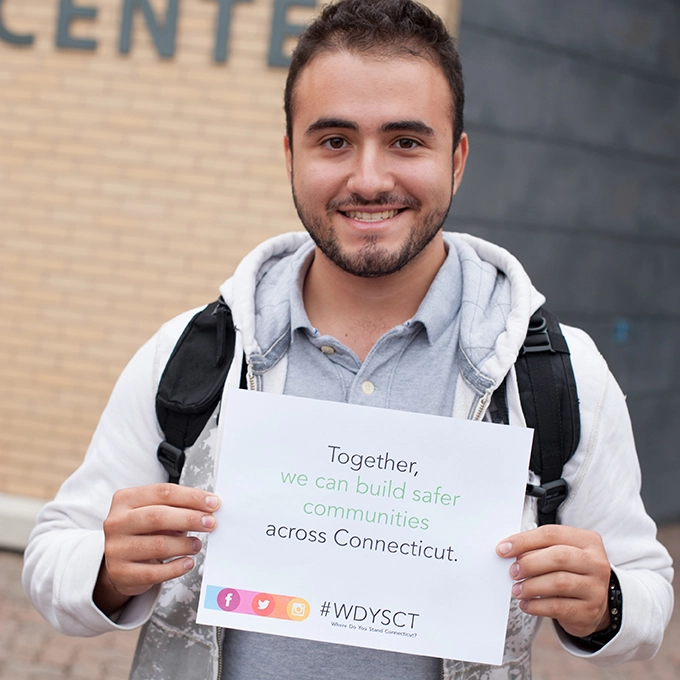
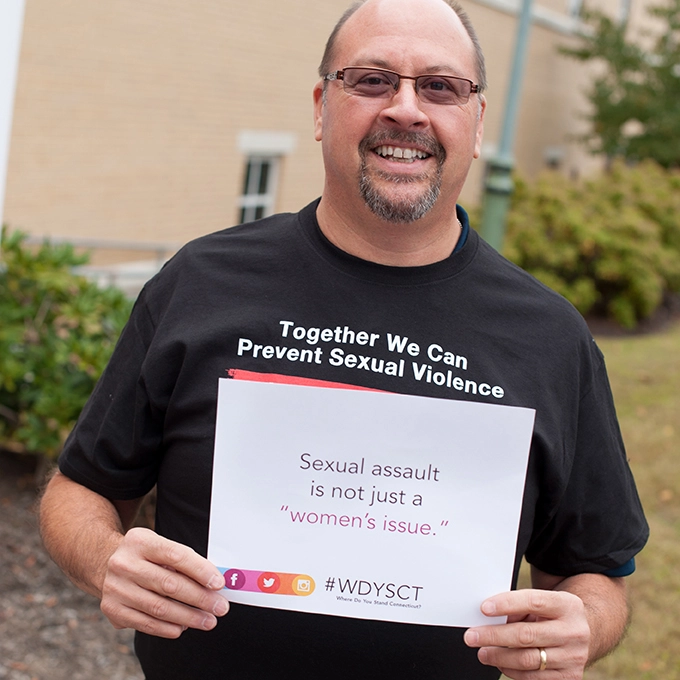
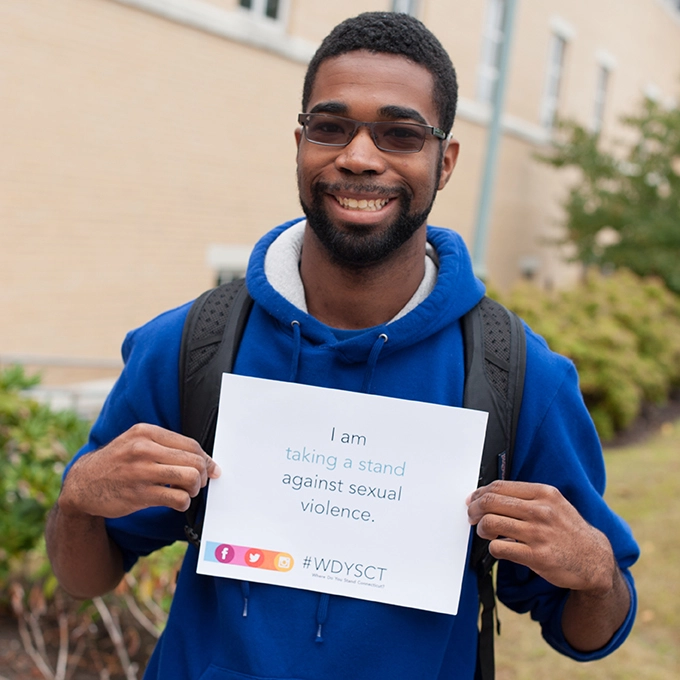
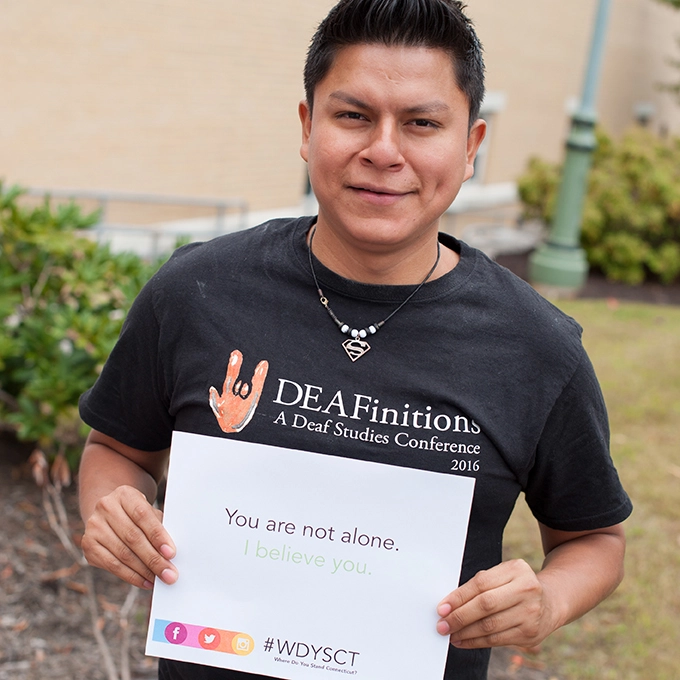
This project was funded in part by the Connecticut Department of Public Health and the Centers for Disease Control & Prevention.
